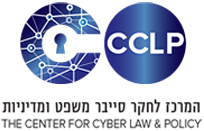PI: Ryan Shandler
Abstract:
We are faced with a new reality where our reliance on internet access to fulfil basic civil tasks is threatened by increasing personal and societal cyber vulnerability. This dichotomy of dependence and vulnerability requires a new framework for understanding the legal and human rights status of this evolving technological reality. A number of theories have sought to explain how internet access could attain the status of a human right. These include reliance on the freedom of expression protection offered by the International Covenant on Civil and Political Rights and the Universal Declaration of Human Rights. More recent approaches have suggested that international customary law could apply, or that internet access could attain the status of an auxiliary human right. Despite repeated demands by international institutions to address modern cyber challenges through a human rights lens, this assortment of legal approaches has failed to garner a consensus view in the international community. The article reviews the merits of each of these arguments, and grounds the debate in the lens of this reality of dependence and vulnerability. Of the four options surveyed, we find that auxiliary righthood is the most promising approach, but that additional research is required to substantiate the claims. ... Read More in the PDF FIle.
© 2018 THE CENTER FOR CYBER LAW & POLICY. All rights reserved.





